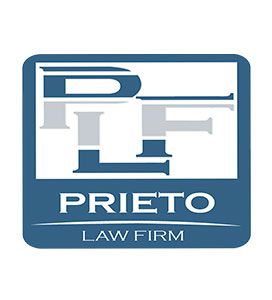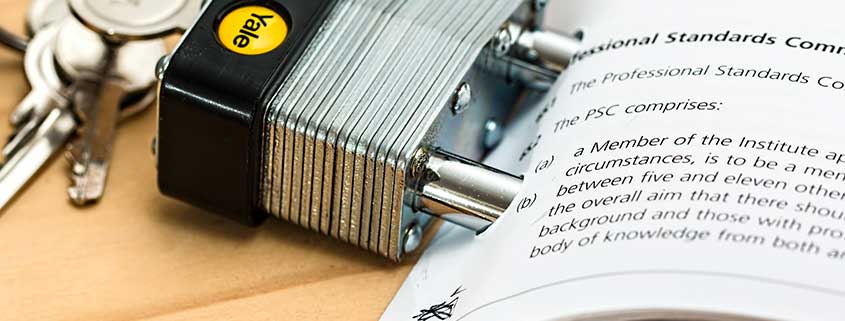Federal Cases
The areas of Medicare, Medicaid, and other forms of general healthcare fraud have become a focus of both the Attorney General of Florida and other states and the Department of Justice. Years ago, the United States established the Medicare Strike Force that has become a front-runner in these prosecutions across the nation. Mr. Prieto has handled cases in these areas at both the State and Federal levels with excellent results.
The banks have guidelines that they must follow, and this includes reporting suspecting criminal activity. There are computer programs that alert the bank’s own investigative personnel who often get Federal investigators involved. Bank fraud is a federal offense that the U.S. Attorney’s Office prosecutes to the fullest extent of the law. Bank fraud will often be charged with wire fraud which can increase penalties depending on the amounts of the fraud involved.
Under federal law, anyone knowingly possessing a fraudulent credit card can be found guilty of fraud or identity theft. Banks and other financial institutions lose millions of dollars each year stemming from fraudulent credit card activity. Federal prosecutors also regularly charge with conspiracy and fraud, no matter how insignificant a person’s role may have played in an overall criminal scheme.
Mail and wire fraud charges are taken very seriously since Federal authorities control both mail and wire communications. The U.S. Postal Police, the U.S. Secret Service, and the FBI are often involved in these investigations. A defendant faces hefty fines and up to thirty years of prison in some cases. Defendants are also expected to pay restitution to the federal institution or the individuals to who the government claims lost funds or monies.
The IRS Criminal Investigation Unit focuses on prosecuting persons accused of crimes such as filing a false tax return or false documents or failing to pay taxes. The penalties for these types of charges are severe, including up to 5 years in prison, fines up to $500,000, and a civil tax fraud penalty equal to 75% of the tax owed.
Money Laundering is the investment or transfer of illegal money. The money is obtained from illicit sources such as drugs, weapons, wire fraud, or theft and worked through legal outlets to cover the original source and make it look genuine.
Federally prosecuted crimes are often taken more seriously than State courts, even for similar offenses; however, under some circumstances, being charged in Federal courts is more advantageous and can carry fewer penalties because of a “safety valve” exception the mandatory/minimum sentencing structure.
Extradition is a request by a foreign jurisdiction to obtain jurisdiction over a person and have that person transported to the requesting foreign state or country. Extradition is used in criminal matters only.
Import and export crimes usually involve highly taxed, highly regulated, or clearly illegal items such as weapons, tobacco, alcohol, and drugs. They can range from drug smuggling across the border to falsely reporting the intended use of an imported or exported product.
As technology advances, cyber-crimes have become very popular in the past 10 years. These crimes include child pornography and solicitation, cyberstalking, identity theft, Ransomware, and credit card fraud, among other crimes at the state and federal levels.
State Cases
Criminal traffic convictions can result in sentences including expensive fines, community service, a criminal felony record, and substantial jail or prison time. Depending on the circumstances of your arrest and your driving record, Mr. Prieto may be able to have the charges against you reduced or negotiate a lighter sentence.
Jail time, Counseling, Hefty fines, losing your rights to your children, loss of personal property that you jointly hold with your spouse, and a Criminal record
Simply an arrest for domestic violence subjects the accused to public shame and can have serious repercussions.
Stalking or harassment is when a person acts in a way intended to annoy, threaten, provoke or cause another person emotional distress. These crimes can be committed through verbal or non-verbal means and by invading someone’s space or property without that person’s consent. The penalties for these types of cases may include jail time or fines, or both.
Human trafficking charges may be filed in State or Federal court. These charges can include kidnapping, trafficking for prostitution, and solicitation for sex, among others. A person may also be charged with RICO (Racketeer Influenced and Corrupt Organizations Act) if the prosecutors can prove that an organization was profiting from these crimes.
A sex crime allegation can negatively affect someone for the rest of their lives, even if the claims are not valid. These crimes are punished with harsh penalties and include statutory rape, date rape, sexual assault, child pornography, incest, and failure to register as a sex offender, among others.
From simple possession to trafficking, drug-related crimes can have a massive impact on a person’s future. In Florida, even a first conviction carries a 2-year driver’s license suspension. Attorney Frank Prieto is a former narcotics prosecutor prepared to fight for the best possible outcome on your drug-related case.
Arson is a serious charge that involves the use of fire and/or explosives. It is associated with the act of illegally burning down a property — whether for insurance claims or any other reasons. The punishment for these types of crimes depends on the person’s intent causing the damage. A person can potentially face up to life in prison if somebody was harmed or killed.
These types of crimes involve the taking of or the intention to take another’s property. There are many different types of theft crimes, including car theft, petty theft, identity theft, burglary, embezzlement and forgery, counterfeiting, and retail theft. In some cases, state and federal prosecutors will prosecute theft crimes under RICO or racketeering. This is when organized groups run illegal businesses or when an organized crime group uses legitimate organizations to steal money.
Suppose someone is charged with a crime that resulted in no conviction, a dismissal, Nolle Prosequi, or a “No Action.” In that case, that person can have their record expunged or sealed. One can only expunge one case in their lifetime. The record can then be sealed for ten years and cannot be accessed publicly.



















